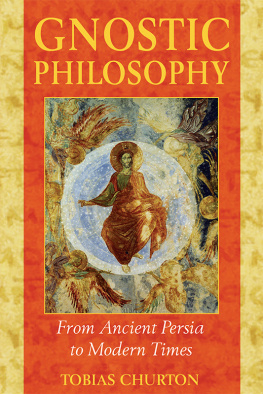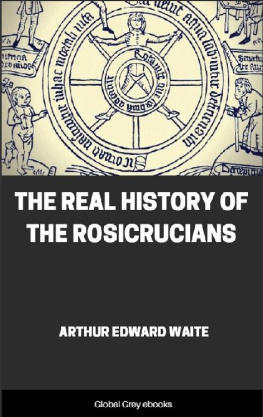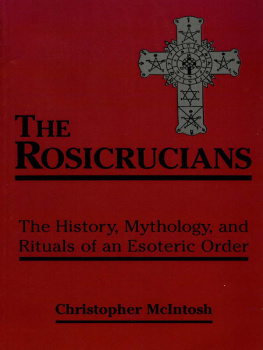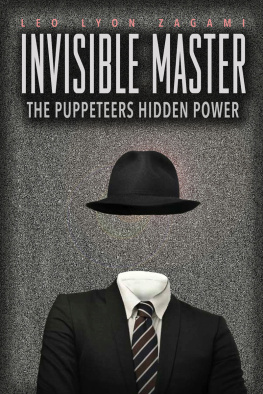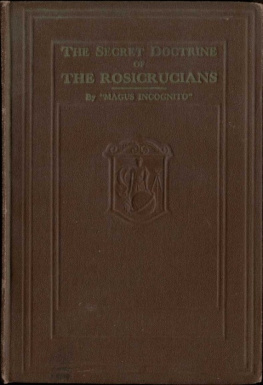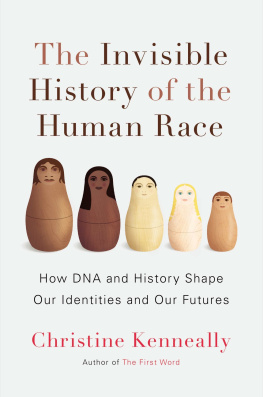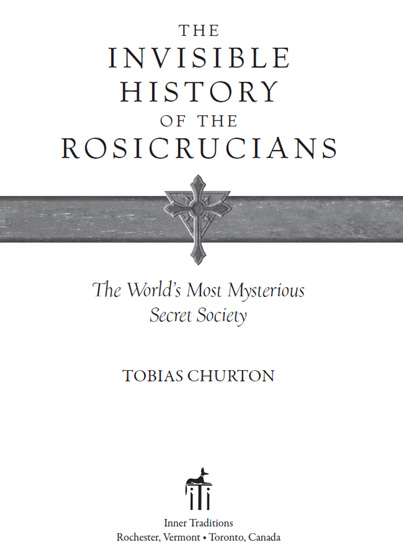
I dedicate this book to my wife and daughter, who have long put up with Daddy upstairs when they might have preferred him elsewhere.
ACKNOWLEDGMENTS
I should like to express my thanks to the following persons and institutions whose assistance has made this book possible.
I am most grateful to the remarkably helpful staff of the bibliotheca Philosophica Hermetica (J. R. Ritman Library) in Amsterdam.
Director Carol McGilverys annual invitations to speak at the Canonbury Masonic Research Centres international conference have offered the opportunity to revive and enrich the work that lies within this book.
Professor Nicholas Goodrick-Clarkes establishment of the Exeter Centre for the study of Western Esotericism (Department of Humanities and Social Sciences, Exeter University) has afforded me the opportunity to refine and develop my Rosicrucian researches in the context of teaching graduates in Britains first postgraduate-degree course in Western Esotericism. This experience has proved invaluable to this book.
Regular discussions with fellow lecturer at Exeter Dr. Christopher McIntosh have also stimulated valuable insights in thinking the project through to its now visible conclusion.
I should also like to thank David Stovell for his help with some particularly difficult old German, Vicki Villers for her help with some stubborn Latin phrases, and Frank van Lamoen for checking over parts of the manuscript.
My mother, Patricia Churton, has been a constant source of help, encouragement, and ear time.
Finally, I should like to thank my agent Fiona Spencer Thomas, who has so skillfully brought a luminous idea into the reality of the marketplace.

CONTENTS
CHAPTER ONE
CHAPTER TWO
CHAPTER THREE
CHAPTER FOUR
CHAPTER FIVE
CHAPTER SIX
CHAPTER SEVEN
CHAPTER EIGHT
CHAPTER NINE
CHAPTER TEN
CHAPTER ELEVEN
CHAPTER TWELVE
CHAPTER THIRTEEN
CHAPTER FOURTEEN
CHAPTER FIFTEEN
CHAPTER SIXTEEN
CHAPTER SEVENTEEN
CHAPTER EIGHTEEN
The Rock
I find this Rock and inscribe upon it
The image of my heart,
For here amid the redressed stones of ancient yesterdays,
I found the source and plan, of a quest,
Another man: to whom I look when no one dares.
The sky, the sky draws its cosy sheet above our heads,
And western minarets, grounded in their mass,
Huddled in their mass
Remain an image for my heart,
Permanent in their watchfulness.
A cloistered, ingrown abscess upon commercial man,
A monk who keeps his prayers and tolls his bell,
Never ceasing, nor forgetting
The harmony in the Plan.
The sky above has laid his hands,
Declaring: Separate you shall be,
Not to wander down the red-brick tiles of alleyways,
Nor consort with the fading stones corruptible,
For with their flags, decrees and bars
Forever incompatible.
I trod the rounded, tiny debris
Of past and new construction,
And wondered, Who could build this basilica of eternity?
Turning back as one: the few who shun modernity.
Theyve tried their best to deck you
With that faded flower, advertisement,
And put their fancy hat
On well-proportioned battlement.
Yet beneath the stumbling, invading sneakers,
The refugees from dole,
I sense the cries of anguish from your weathered,
battered Soul.
Were now at peace in leaving
The erosion of the crowd,
Only wind and elements delay
The progress of the shroud.
TOBIAS CHURTON
CARCASSONNE, CIT MDIVALE,
SEPTEMBER 1979
INTRODUCTION
W hen I was a student at Oxford in the late 1970s, esoteric theology was about as popular with the university authorities as Jewish studies would have been under the Nazis. To be frank, the subject simply did not exist. The theology courses had been established with the needs of the Catholic and Protestant Churches uppermost in mind, and all that churchmen needed to know was that there was something called heresy and that it was contemptible. Why was it contemptible?because it did not conform to the teachings of the churches.
I have racked my brain to determine when I first became aware that there was a different way of looking at the matter of religion, a vision neither Catholic nor Protestant, but something wholly spiritualand real. I do not think I can really say when that awareness came to me. When I was a boy, everything was spiritual. We lived, as it were, from out of ourselves into the world. The inner and the outer worlds were magically one.
This innocent state was a lot of fun, most of the time. There was little need for ritual, art, books, and other supports when there was such a fabulous range of toys and playmates around. The material world meant model soldiers, cowboys and Indians, Batman and Robin.
Toys are material fantasies, living links between imagination and hard matter, like the idols and icons of old. TV (before journalists predominated) was just dream stuff, though it packed a surprising emotional punch. Almighty God had blessed the world with such delights for boys and girls, and it all proved he must have been a thoroughly Good sort, because we had defeated the Germans, and the communists were having a miserable time. What could they expect if they tortured people for being honest?
Furthermore, there were cinemas, showing mostly American films, where good people often won because they were good. How very spiritual! The best films were wonderful exercises in techniques of imagination: fantastically positive, stylish, witty, and chock-full of ideas for fresh games. It was often bliss to be alive. And when you felt bliss, something that was so very good welled up from deep inside: pure spirit. The spiritual world came gushing out, ready to wash about anything analogous that came into view. It was so intoxicating it is amazing there was not a law against it.
There was; but I had not hit it yet. A little Child shall lead thembut who will follow?
The magic lantern was magic, all rightlight in the darkness, with exit signs on either side of the screen, just like life.
It was not to last.
Someone said that growing up is a crime. When Herod tried to kill Christ, the first thing he did was to murder the newborn of Bethlehem.
Childhood and innocence are central to the genuine gnostic tradition. Gnostics have been accused of practically everything wicked over the centuries, but child abuse has never appeared on the indictment. That seems to be a specialty of a suspiciously large number of more orthodox religious teachers.
How do you judge a religion? How about this? Look at how they treat the children. The same goes for the stateany state. Yes, I know. They are not all like that. Sure, most are benign enough much of the timeuntil you challenge them directly. I speak from experience.
Next page

